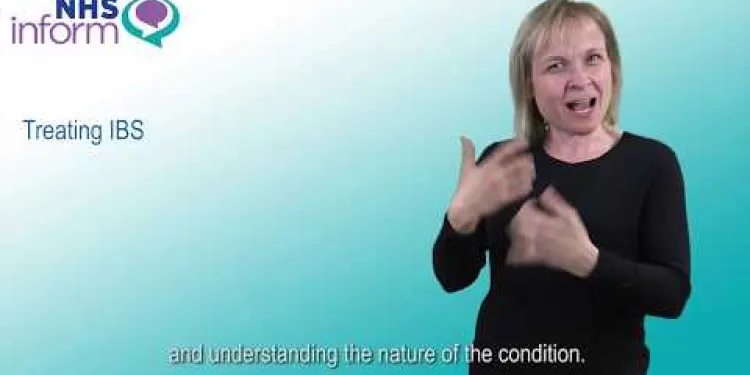
Find Help
More Items From Ergsy search
-

Is chronic fatigue syndrome contagious?
Relevance: 100%
-

What is chronic fatigue syndrome?
Relevance: 100%
-

Is there a cure for chronic fatigue syndrome?
Relevance: 100%
-

What causes chronic fatigue syndrome?
Relevance: 96%
-

Is chronic fatigue syndrome a mental illness?
Relevance: 95%
-

Are there psychological aspects to chronic fatigue syndrome?
Relevance: 93%
-

Can children develop chronic fatigue syndrome?
Relevance: 88%
-

What role do infections play in chronic fatigue syndrome?
Relevance: 86%
-

Who is at risk of developing chronic fatigue syndrome?
Relevance: 82%
-

Myalgic encephalomyelitis or chronic fatigue syndrome (ME/CFS) | NHS
Relevance: 82%
-

How is chronic fatigue syndrome treated?
Relevance: 75%
-

How is chronic fatigue syndrome diagnosed?
Relevance: 69%
-

Can chronic fatigue syndrome be managed with lifestyle changes?
Relevance: 65%
-

How does CFS differ from regular fatigue?
Relevance: 50%
-

What is irritable bowel syndrome (IBS)?
Relevance: 44%
-

Prader-Willi Syndrome | NHS
Relevance: 42%
-

What is Cushing's syndrome?
Relevance: 40%
-

About irritable bowel syndrome (IBS)
Relevance: 39%
-

Can sleep apnea be cured?
Relevance: 39%
-

Is there a cure for psoriasis?
Relevance: 39%
-

Charles Bonnet Syndrome
Relevance: 38%
-

Is there a cure for eczema?
Relevance: 38%
-

Can asthma be cured?
Relevance: 37%
-

Can heart failure be cured?
Relevance: 37%
-

Is there a cure for Crohn's disease?
Relevance: 37%
-

Is there a cure for cold sores?
Relevance: 36%
-

Is there a cure for ADHD?
Relevance: 36%
-

Can autism be cured?
Relevance: 35%
-

Is there a cure for dementia?
Relevance: 35%
-

Turner syndrome: Beyond the classic XO phenotype
Relevance: 34%
-

Having a child with Down's syndrome | NHS
Relevance: 34%
-

What is post-treatment Lyme disease syndrome (PTLDS)?
Relevance: 34%
-

Treating irritable bowel syndrome (IBS)
Relevance: 34%
-

Can tinnitus be cured?
Relevance: 34%
-

About irritable bowel syndrome (IBS)
Relevance: 33%
-

Carpal Tunnel Syndrome
Relevance: 33%
-

Can fatigue result in dangerous driving?
Relevance: 33%
-

Munchausen's syndrome | NHS
Relevance: 33%
-

Can HIV be cured?
Relevance: 33%
-

Can Huntington's disease be cured?
Relevance: 33%
Understanding Chronic Fatigue Syndrome
Chronic Fatigue Syndrome (CFS), also known as Myalgic Encephalomyelitis (ME), is a complex and debilitating disorder characterized by profound fatigue that doesn't improve with rest. It often worsens with physical or mental exertion. The condition affects an estimated 250,000 people in the UK, significantly impacting their quality of life. Despite extensive research, the exact cause of CFS remains unclear, making it a challenging condition to treat.
Current Approaches to Managing CFS
While there is no definitive cure for Chronic Fatigue Syndrome at present, various management strategies can help alleviate symptoms and improve the quality of life for patients. Treatment plans are often personalized, reflecting the diverse nature of the condition and the varying symptoms experienced by individuals. These strategies typically include a combination of medical, physical, and psychological interventions.
Medical Interventions
Doctors may recommend medications to manage specific symptoms associated with CFS, such as pain, sleep disturbances, or depression. Commonly prescribed drugs include pain relievers, antidepressants, and sleep aids. However, it is important to note that these medications do not address the underlying causes of the disorder but rather help manage individual symptoms.
Psychological Support
Cognitive Behavioural Therapy (CBT) has been shown to be beneficial for some patients, particularly in helping them develop coping strategies for dealing with the illness. Although controversial, graded exercise therapy (GET) is another approach that has been suggested, focusing on gradually increasing physical activity. Nonetheless, many patients report worsening of symptoms with GET, and it should be approached with caution.
Lifestyle Modifications
Patients are often encouraged to implement lifestyle changes to manage their energy levels better. This includes pacing activities, setting realistic goals, and prioritizing essential tasks to avoid overexertion. Maintaining a balanced diet, ensuring adequate hydration, and following a consistent sleep routine are also recommended as part of a holistic approach to managing CFS.
Research and Future Directions
Ongoing research into CFS aims to better understand its causes and develop more effective treatments. Recent studies have focused on potential links between CFS and immune system dysfunction, viral infections, and hormonal imbalances. While a cure remains elusive, advancements in research continue to provide hope for new therapeutic options in the future.
Conclusion
Chronic Fatigue Syndrome remains a challenging condition both for those affected and healthcare providers. While there is currently no cure, a combination of medical treatments, psychological support, and lifestyle changes can help manage the condition. The future holds the promise of improved treatments as researchers continue to explore the complexities of this debilitating syndrome.
Understanding Chronic Fatigue Syndrome
Chronic Fatigue Syndrome (CFS), also called Myalgic Encephalomyelitis (ME), makes people very tired. This tiredness does not get better with rest and can get worse with activity. About 250,000 people in the UK have CFS. It affects their everyday life a lot. We do not know exactly what causes CFS, which makes it hard to treat.
Ways to Manage CFS
There is no cure for CFS right now, but there are ways to help with symptoms. These can make life better for people with CFS. Each person might get different treatments because CFS affects everyone differently. The help can be medicine, physical activities, or talking therapies.
Medical Help
Doctors might give medicines for specific symptoms like pain or trouble sleeping. These can include painkillers or medicines for depression and sleep. But these medicines do not cure CFS. They just help with certain symptoms.
Psychological Help
Talking therapy called Cognitive Behavioural Therapy (CBT) can be helpful. It teaches ways to cope with CFS. Some try exercise therapy to slowly increase activity, but this can make symptoms worse for some, so it should be done carefully.
Changes in Daily Life
People with CFS should plan their day to save energy. They should set easy goals and focus on the most important tasks. Eating healthy food, drinking enough water, and sleeping well are also important to feel better.
Research and Future Hope
Scientists are studying CFS to understand it better and find better treatments. They are looking at links between CFS and the immune system, infections, and hormones. We hope to find better treatments in the future.
In Summary
Chronic Fatigue Syndrome is a tough illness. There is no cure yet, but medicines, therapy, and lifestyle changes can help. Scientists are working hard to find better solutions for people with CFS.
Frequently Asked Questions
Useful Links
This website offers general information and is not a substitute for professional advice.
Always seek guidance from qualified professionals.
If you have any medical concerns or need urgent help, contact a healthcare professional or emergency services immediately.
- Ergsy carfully checks the information in the videos we provide here.
- Videos shown by Youtube after a video has completed, have NOT been reviewed by ERGSY.
- To view, click the arrow in centre of video.
- Most of the videos you find here will have subtitles and/or closed captions available.
- You may need to turn these on, and choose your preferred language.
- Go to the video you'd like to watch.
- If closed captions (CC) are available, settings will be visible on the bottom right of the video player.
- To turn on Captions, click settings .
- To turn off Captions, click settings again.
More Items From Ergsy search
-

Is chronic fatigue syndrome contagious?
Relevance: 100%
-

What is chronic fatigue syndrome?
Relevance: 100%
-

Is there a cure for chronic fatigue syndrome?
Relevance: 100%
-

What causes chronic fatigue syndrome?
Relevance: 96%
-

Is chronic fatigue syndrome a mental illness?
Relevance: 95%
-

Are there psychological aspects to chronic fatigue syndrome?
Relevance: 93%
-

Can children develop chronic fatigue syndrome?
Relevance: 88%
-

What role do infections play in chronic fatigue syndrome?
Relevance: 86%
-

Who is at risk of developing chronic fatigue syndrome?
Relevance: 82%
-

Myalgic encephalomyelitis or chronic fatigue syndrome (ME/CFS) | NHS
Relevance: 82%
-

How is chronic fatigue syndrome treated?
Relevance: 75%
-

How is chronic fatigue syndrome diagnosed?
Relevance: 69%
-

Can chronic fatigue syndrome be managed with lifestyle changes?
Relevance: 65%
-

How does CFS differ from regular fatigue?
Relevance: 50%
-

What is irritable bowel syndrome (IBS)?
Relevance: 44%
-

Prader-Willi Syndrome | NHS
Relevance: 42%
-

What is Cushing's syndrome?
Relevance: 40%
-

About irritable bowel syndrome (IBS)
Relevance: 39%
-

Can sleep apnea be cured?
Relevance: 39%
-

Is there a cure for psoriasis?
Relevance: 39%
-

Charles Bonnet Syndrome
Relevance: 38%
-

Is there a cure for eczema?
Relevance: 38%
-

Can asthma be cured?
Relevance: 37%
-

Can heart failure be cured?
Relevance: 37%
-

Is there a cure for Crohn's disease?
Relevance: 37%
-

Is there a cure for cold sores?
Relevance: 36%
-

Is there a cure for ADHD?
Relevance: 36%
-

Can autism be cured?
Relevance: 35%
-

Is there a cure for dementia?
Relevance: 35%
-

Turner syndrome: Beyond the classic XO phenotype
Relevance: 34%
-

Having a child with Down's syndrome | NHS
Relevance: 34%
-

What is post-treatment Lyme disease syndrome (PTLDS)?
Relevance: 34%
-

Treating irritable bowel syndrome (IBS)
Relevance: 34%
-

Can tinnitus be cured?
Relevance: 34%
-

About irritable bowel syndrome (IBS)
Relevance: 33%
-

Carpal Tunnel Syndrome
Relevance: 33%
-

Can fatigue result in dangerous driving?
Relevance: 33%
-

Munchausen's syndrome | NHS
Relevance: 33%
-

Can HIV be cured?
Relevance: 33%
-

Can Huntington's disease be cured?
Relevance: 33%


